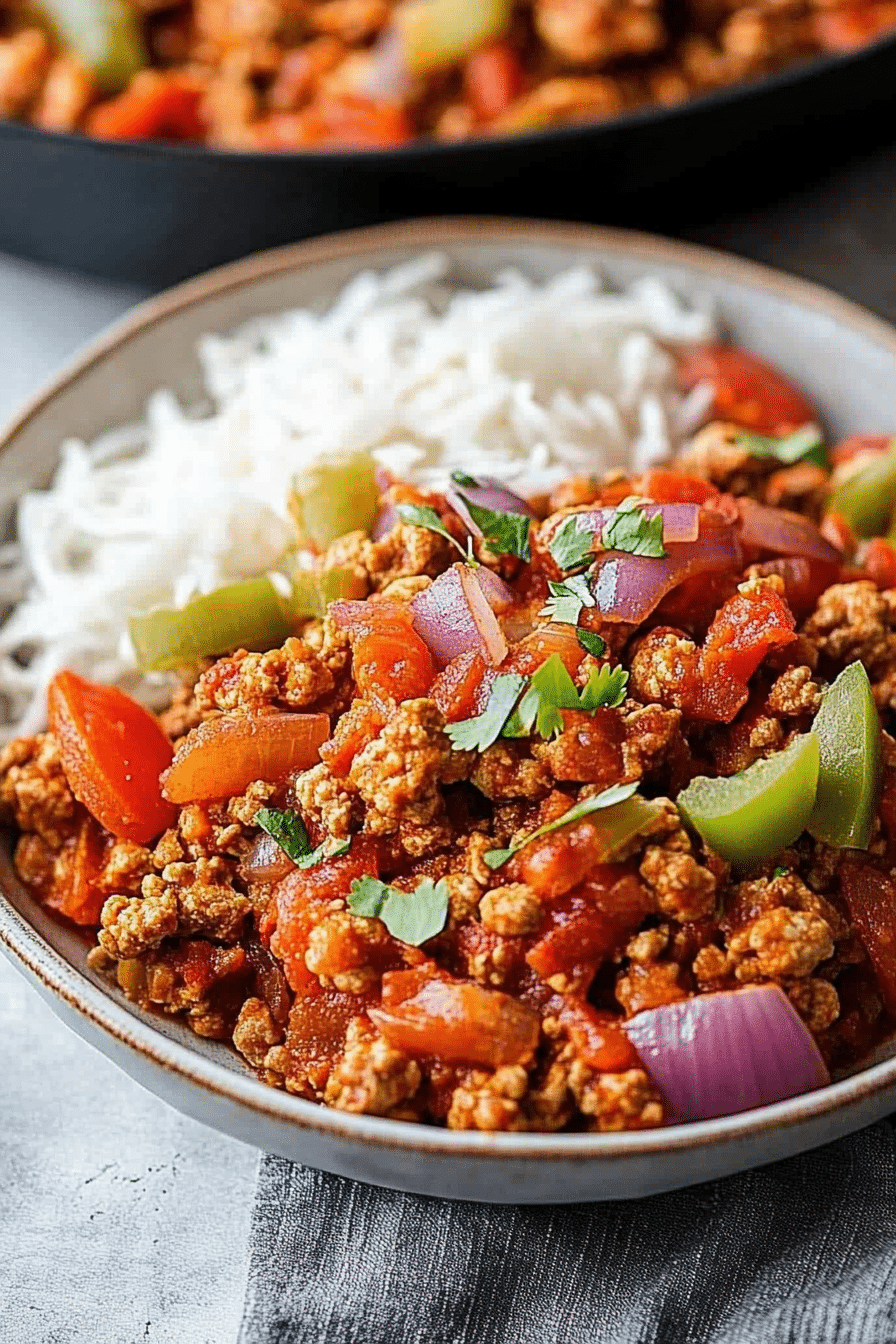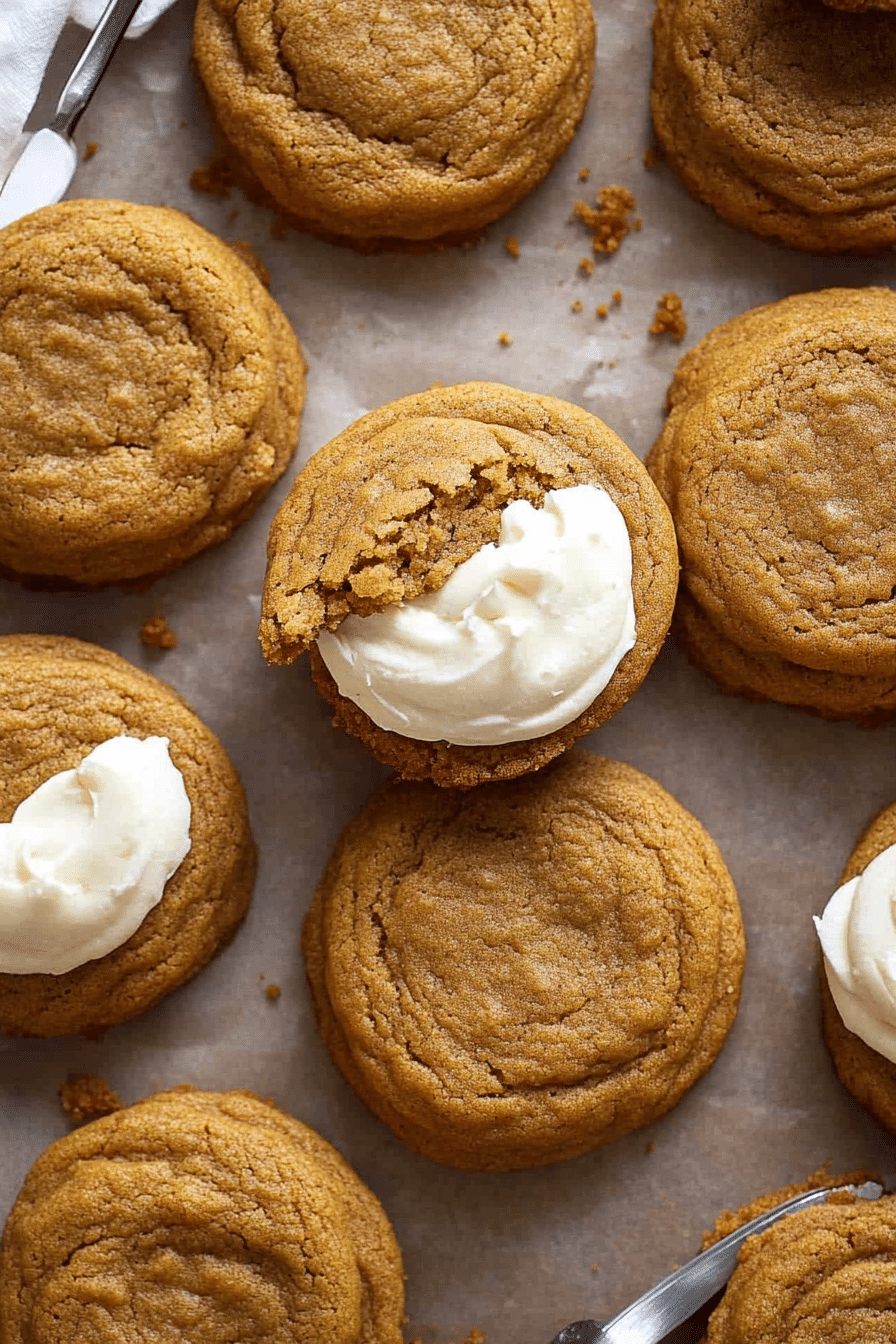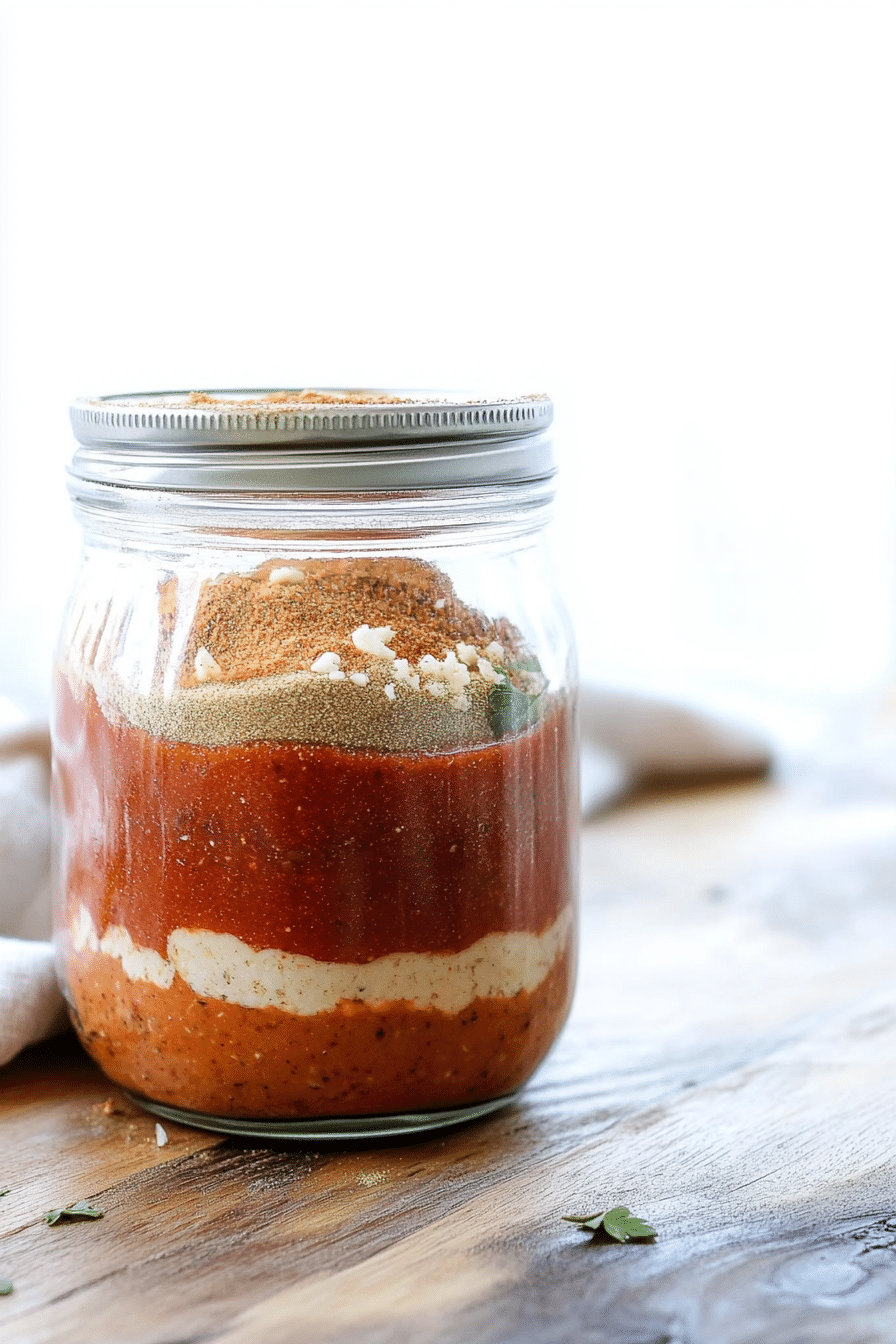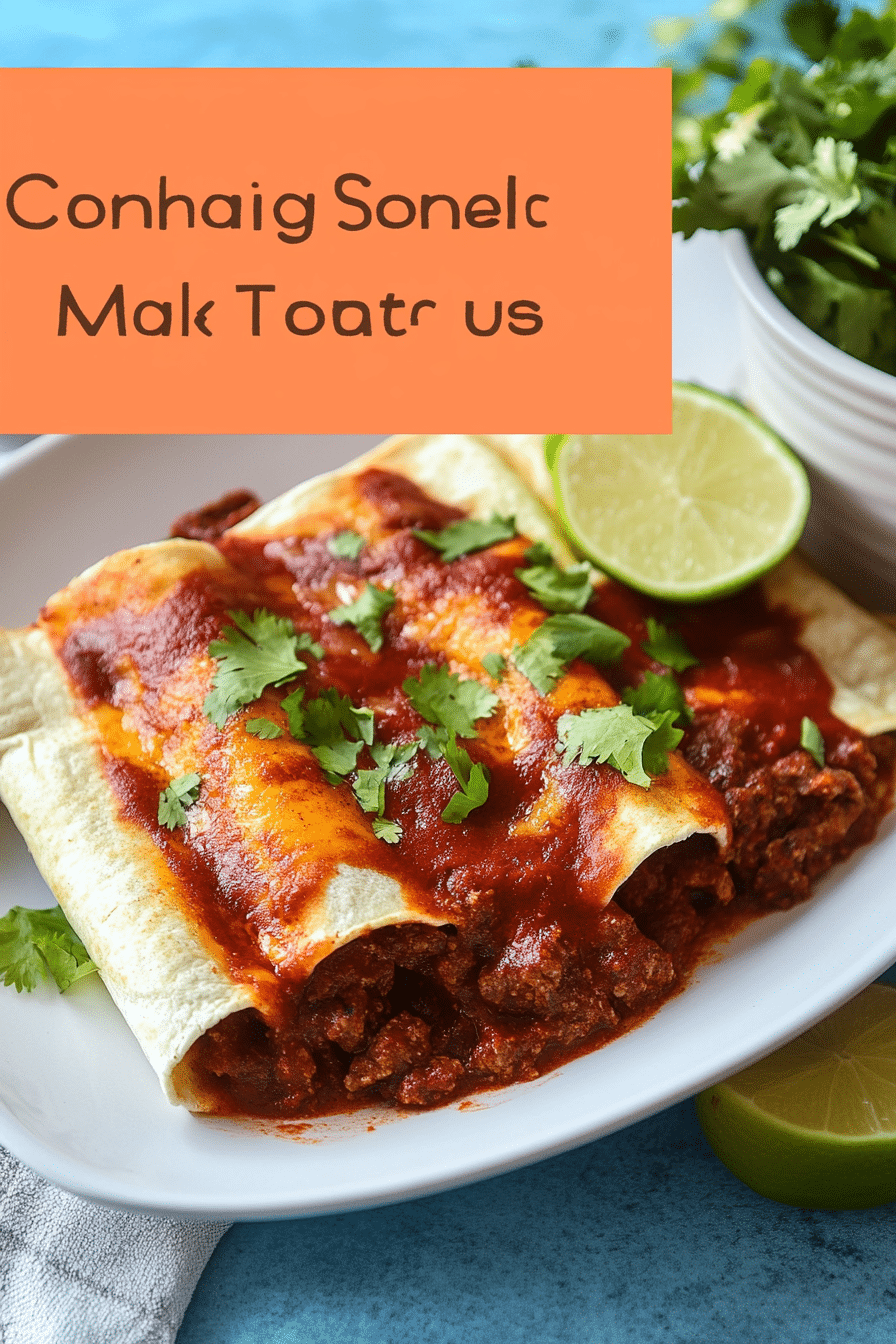I still remember the first time my grandmother taught me how to stack the flavors just right. The kitchen smelled like simmering tomatoes, garlic, and warm oregano, and the pasta sheets soaked up every bit of saucy goodness. That moment wasn’t about following a recipe so much as learning a ritual: layer, breathe, taste, repeat. Now, every time I make homemade lasagna, it feels like inviting my favorite people to the table. It’s a dish I reach for on busy nights because it tastes like comfort without feeling fussy. The sauce braises while you sip your coffee, the cheese melts into creamy folds, and the kids can’t wait to slice through the bubbling top. If you’ve got a craving for something hearty and homey, this is the one. It’s a little labor of love, a big hug in a pan, and the aroma alone has a way of pulling everyone into the kitchen.
What is a home made lasagna?
Think of homemade lasagna as a cozy, layered celebration of Italian comfort food. It’s essentially sheets of pasta meeting a deeply flavored meat or veggie sauce, a creamy ricotta filling, and a blanket of melted cheese that browns on top as it bakes. The name itself hints at its country roots and its American transformation—a dish that travels well, feeds a crowd, and becomes a memory each time you lift the first slice. It’s not fussy: you’re just stacking things you love in a pan and letting them mingle. The result is a hearty bake that’s perfect for family dinners, potlucks, or lazy Sundays when you want leftovers that taste like a party in your mouth. If you’ve ever wished for a one-dish meal that still feels special, this lasagna nails it.
Why you’ll love this recipe?
What I love most about this lasagna is how forgiving it can be while still feeling like a showstopper. It’s got layers that cradle each other and a flavor that deepens as it rests. The sauce is rich but balanced, the filling is creamy with a touch of tang, and the top crust gets that delicate, bubbly browning that screams “feed the crowd.” This version is designed for real weeknights—no marathon in the kitchen required, and it scales up beautifully for bigger families or when friends swing by with a bottle of wine. You can customize almost every layer, which means this dish is a dependable blank canvas. My kids actually ask for seconds, which is basically a victory lap in our house. What I love most about this recipe is its versatility: swap in turkey or sausage, play with mushrooms or spinach, or go fully vegetarian and still get that luscious texture. And yes, I’ve tested it with almond milk in the glaze, and it still feels decadent. If you’re craving warmth and all the good stuff, this is your go-to.
How do I make homemade lasagna?
Quick Overview
Here’s the simple heartbeat of the method: warm the sauce until it sings, whip up a creamy cheese filling, and bake layered between soft pasta sheets until everything is tender and gooey. The beauty is in the balance—tomato brightness, savory meat or veggie depth, and a gentle cheese glaze that holds everything together. You’ll assemble in a few Simple Steps, let the oven work its magic, and then slice into something that feels like a family tradition even if it’s your first time cooking it. Don’t worry if you don’t have every ingredient perfect—lasagna is forgiving and wonderfully forgiving when you let the flavors mingle.
Ingredients
For the Main Batter:
- 2 pounds ground beef or a mix of beef and pork (sausage works great too)
- 1 large onion, finely chopped
- 3–4 garlic cloves, minced
- 28-ounce can crushed tomatoes (San Marzano if you can find them)
- 2 tablespoons tomato paste
- 1 teaspoon dried oregano
- 1 teaspoon dried basil, or a handful of fresh leaves
- Salt and pepper to taste
- 1 teaspoon sugar (to balance the acidity, optional)
For the Filling:
- 15 ounces ricotta cheese
- 1 large egg, lightly beaten
- 1/2 cup grated Parmesan
- 2 cups shredded mozzarella, plus extra for topping
- 1 cup fresh spinach or chopped mushrooms (optional)
- Pinch of nutmeg (optional, but lovely)
For the Glaze:
- 1 cup milk or creamy almond milk for a lighter tone
- 2 tablespoons butter or olive oil
- 2 tablespoons flour (or gluten-free blend)
- 1/2 cup grated mozzarella
- 1/3 cup grated Parmesan
- Salt and pepper to taste
Step-by-Step Instructions
Step 1: Preheat & Prep Pan
Heat your oven to 375°F (190°C). Lightly grease a 9×13-inch baking dish with olive oil or butter. If you’re using no-boil noodles, set them in a wide pan with warm water to soften while you start the sauce. This is the moment where you can smell garlic and onions warming the air—it’s the best sign that dinner is on its way.
Step 2: Mix Dry Ingredients
In a small bowl, combine dried oregano, basil, salt, and pepper. If you’re aiming for a deeper herb note, you can crumble a few dried bay leaves into the sauce early on and fish them out later. This helps lay a flavor foundation without overwhelming the sauce with moisture.
Step 3: Mix Wet Ingredients
In a separate bowl, whisk together the ricotta, egg, and half of the Parmesan. This is your creamy, dreamy filling that’ll spread between every layered embrace of noodle and sauce. If you’re feeling fancy, fold in a handful of chopped spinach for color and nutrition.
Step 4: Combine
In a skillet, sauté onions and garlic in a bit of oil until they’re soft and translucent. Add the ground meat, cooking until it’s browned and crumbled. Stir in the tomatoes, tomato paste, and your herb mix. Let the sauce simmer gently for 15–20 minutes, so the flavors marry and reduce a touch. The aroma should be bright with tomato and earthy with meat—this is your flavor foundation.
Step 5: Prepare Filling
Whisk the ricotta mixture until smooth, then fold in the remaining mozzarella and a little extra Parmesan. If you’ve got spinach or mushrooms, fold them in now. Taste and adjust with salt and a pinch of nutmeg if you like. You want the filling to be creamy with a gentle kick from the cheese.
Step 6: Layer & Swirl
Spread a thin layer of sauce on the bottom of the pan. Layer noodles, then some of the ricotta filling, then a generous spoonful of meat sauce, and a sprinkle of mozzarella. Repeat until you’re close to the top. Finish with a final ribbon of sauce and a hearty shower of mozzarella and Parmesan. If you love a marble effect, drizzle a little extra sauce in a random swirl to create a pretty, homemade look.
Step 7: Bake
Cover the pan with foil and bake for 25 minutes. Remove the foil and bake another 25 minutes, until the edges are bubbling and the top is deeply golden. If your noodles are extra thick or if you like a crisp top, give it a few extra minutes, but keep an eye on it so the center doesn’t dry out.
Step 8: Cool & Glaze
Let the lasagna rest for about 15 minutes after baking; this helps it slice cleanly. While it rests, make a quick glaze by warming the milk with a little butter and flour until it thickens into a silky coating. Stir in the mozzarella and Parmesan until glossy, then pour a light glaze over the top just before serving if you want a shiny finish.
Step 9: Slice & Serve
Use a sharp knife to cut clean, even slices. A thin spatula helps lift each piece without disturbing the layers. Serve with a simple green salad, a crusty loaf of bread, and a fork full of that creamy filling. The first bite should be a chorus of textures—the tender noodle, the meaty sauce, the creamy center, and the pull of melted cheese. It’s comfort you can see and taste.
What to Serve It With
This lasagna is the center of the meal, but it shines brightest with thoughtful sides and a little sparkle on the table. Here are some crowd-pleasing accompaniments that keep things balanced and delicious.
For Breakfast: If you’re serving a brunch version, think crisp garlic bread rounds and a bright tomato-mint salad to wake up the palate. A shot of strong espresso or a frothy cappuccino pairs surprisingly well with the richness of the lasagna.
For Brunch: A light arugula salad with lemon vinaigrette adds a zingy contrast, and a sparkling water with a twist of orange keeps things refreshing beside the warm, cheesy slices.
As Dessert: No, not dessert—this is still a main, but if you’re hosting a long meal, offer espresso cookies or biscotti on the side for a little dunk-and-dip moment between bites. The robust flavors of lasagna pair beautifully with a simple vanilla gelato or a light citrus sorbet to cleanse the palate after a big forkful.
For Cozy Snacks: Serve sliced Lasagna Bites as an easy snack: small portions heated and plated with a dollop of ricotta and a pinch of parsley. Leftovers make excellent lunch boxes too, which is basically a lifesaver on busy nights.
In our house, this dish often becomes a welcome ritual—someone brings the salad, someone else brings bread, and we all sit with plates piled high. It’s amazing how a single pan can feel like a whole family gathering. For a fun twist, I sometimes swap in spinach leaves for a brighter green or use turkey instead of beef for a lighter take. The beauty of homemade lasagna is in its adaptability—and in how it tastes better the next day, when the layers have fully mingled.
Top Tips for Perfecting Your Homemade Lasagna
Here are a few tricks I’ve learned along the way that keep this dish consistently delicious and easy to recreate.
Zucchini Prep: If you’re feeling lighter, grate a zucchini, salt it lightly, and let the moisture drain for 10 minutes. Squeeze out the excess and fold into the filling for extra moisture without sogginess. If you’re not worried about carbs, skip this step—there’s still plenty of richness from the cheese and meat sauce.
Mixing Advice: Don’t overmix the ricotta filling; you want it to stay fluffy. If you whisk too aggressively, it can become dense. A gentle stir keeps it creamy and light, which makes all the difference when you bite into the slice.
Swirl Customization: To create a pretty swirl, dollop sauce in the pan and use a skewer to drag a few lines through the cheese layer before topping. It looks restaurant-worthy and helps the sauce permeate every corner of the dish.
Ingredient Swaps: ground turkey or Italian chicken sausage can replace beef for a lighter version. For a vegetarian route, double down on sautéed mushrooms, zucchini, and spinach with a béchamel alternative. If you’re going dairy-free, use a plant-based ricotta substitute and a dairy-free mozzarella substitute—you’ll still get that comforting melt.
Baking Tips: If your oven runs hot, use a lower rack with a loose foil cover for the first half of baking to prevent the top from burning. If your bake is browner than you want, tent with foil for the last 10 minutes to finish melting without scorching.
Glaze Variations: For a glossy finish with a kick, whisk in a teaspoon of balsamic glaze into the glaze just before pouring. You can also swap in a little roasted garlic whisked into the milk for a deeper aroma. The glaze is optional, but it adds a little extra shine and flavor.
Over the years I’ve learned that patience matters: letting the lasagna rest after baking makes slicing easier and the flavors settle into a harmonious finish. I always let mine rest at least 15 minutes, and I find those minutes add up to a much cleaner slice and a more cohesive bite. And trust me on this one—taste test before serving. If the sauce tastes a touch sharp, a pinch more sugar balances it perfectly.
Storing and Reheating Tips
Lasagna is a master of leftovers, and with a few smart storage tricks, it stays just as wonderful as day one.
Room Temperature: If you’re taking it to a potluck or leaving it out briefly, aim for no more than two hours at room temperature. If it’s warmer than 90°F (32°C), reduce that window to one hour.
Refrigerator Storage: Slice into portions and store in airtight containers. The lasagna will stay fresh for 3–4 days in the fridge. Rewarm gently in a covered dish in the oven at 350°F (175°C) for 15–20 minutes, or until heated through. A splash of water helps keep the layers moist as they reheat.
Freezer Instructions: For longer storage, freeze unbaked assembled lasagna: wrap tightly in plastic wrap, then foil. It’ll keep 2–3 months. Thaw overnight in the fridge before baking, then bake covered for 25 minutes, uncover, and finish until bubbling and golden.
Glaze Timing Advice: If you’ve already sliced and want to reheat with glaze, apply the glaze after reheating to avoid soggy layers. If you’re freezing, skip glazing and add it fresh when you rewarm.
These methods have kept my lasagna tasting like it’s freshly made, even after a few nights in the fridge. The texture holds, the flavors stay balanced, and you’ll still get that comforting, first-slice-wow moment when you serve it hot.
Frequently Asked Questions
Final Thoughts
This lasagna is a hug in a pan—simple ingredients, patient layering, and a finish that makes the house smell like Sunday supper even on a Tuesday. It’s the kind of dish that teaches you to trust the basics: good tomatoes, generous cheese, and a little love goes a long way. The leftovers are just as wonderful, which means you’re never far from a comforting lunch or a quick dinner that tastes like a warm memory. If you try it, I’d love to hear how you customized it—what herbs did you add, did you swap the meat for veggies, or did you swap in a bechamel twist for extra creaminess? Share your notes in the comments, rate the recipe, and tell me what your family loved most. Happy baking!
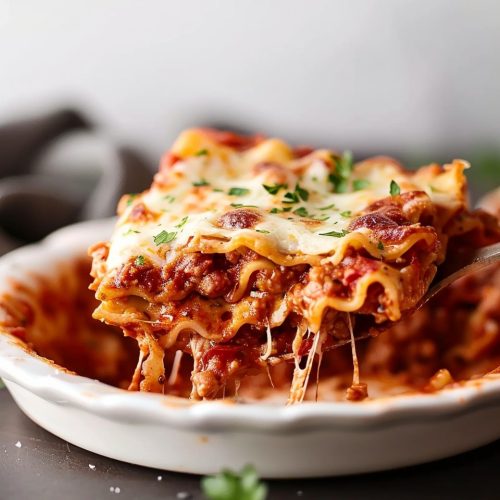
Homemade Lasagna
Ingredients
For the Meat Sauce
- 1 pound ground beef
- 0.5 pound ground Italian sausage
- 1 large onion, chopped
- 3 cloves garlic, minced
- 1 can (28 ounce) crushed tomatoes
- 1 can (15 ounce) tomato sauce
- 0.5 cup red wine (optional)
- 2 teaspoon dried basil
- 1 teaspoon dried oregano
- 0.5 teaspoon red pepper flakes
- 0.5 teaspoon salt
- 0.25 teaspoon black pepper
For the Cheese Filling
- 1 container (15 ounce) ricotta cheese
- 1 large egg, beaten
- 0.25 cup grated Parmesan cheese
- 2 tablespoons chopped fresh parsley
- 0.5 teaspoon salt
- 0.25 teaspoon black pepper
For Assembling
- 2 cups shredded mozzarella cheese
- 1 cup grated Parmesan cheese
Instructions
Preparation Steps
- Make the Meat Sauce: In a large pot or Dutch oven, cook the ground beef and sausage over medium heat until browned. Drain off excess fat.
- Add the chopped onion and cook until softened, about 5 minutes. Stir in the minced garlic and cook for 1 minute more until fragrant.
- Pour in the crushed tomatoes and tomato sauce. Stir in the red wine (if using), basil, oregano, red pepper flakes, salt, and black pepper. Bring to a simmer, then reduce heat and cook for at least 30 minutes, stirring occasionally. The longer it simmers, the better the flavor.
- Make the Cheese Filling: In a medium bowl, combine the ricotta cheese, beaten egg, ¼ cup Parmesan cheese, parsley, salt, and pepper. Mix well.
- Preheat oven to 375°F (190°C). Grease a 9x13 inch baking dish.
- Assemble the Lasagna: Spread a thin layer of meat sauce on the bottom of the prepared baking dish.
- Arrange 3-4 lasagna noodles over the sauce, overlapping slightly.
- Spread half of the ricotta mixture over the noodles.
- Top with about one-third of the remaining meat sauce.
- Sprinkle with about one-third of the mozzarella cheese.
- Repeat layers: noodles, ricotta, meat sauce, mozzarella. Add a final layer of noodles, the rest of the meat sauce, and the remaining mozzarella and Parmesan cheeses.
- Bake for 25-30 minutes, or until bubbly and lightly browned. Let stand for 10-15 minutes before serving.
Notes
Featured Comments
“Impressed! Clear steps and absolutely loved results. Perfect for busy nights.”
“New favorite here — super easy. crowd-pleaser was spot on.”
“Super easy and turned out amazing! My family asked for seconds. Saving this one.”
“This sweet treat was absolutely loved — the light really stands out. Thanks!”
“Made it tonight and wow — so flavorful! Will definitely make homemade lasagna again.”
“Packed with flavor and so simple. Exactly what I wanted from homemade lasagna.”



